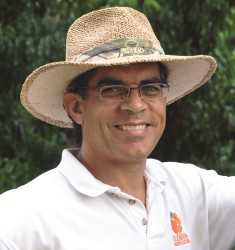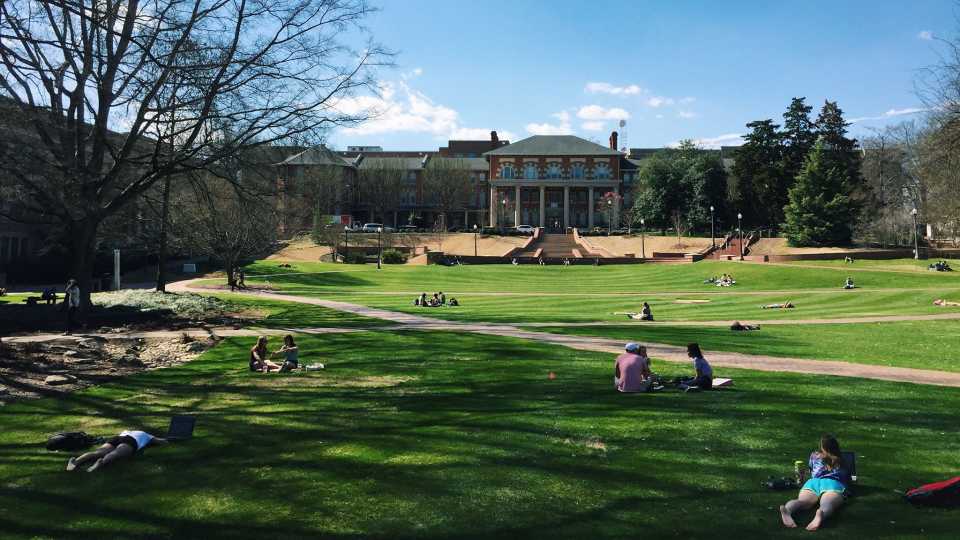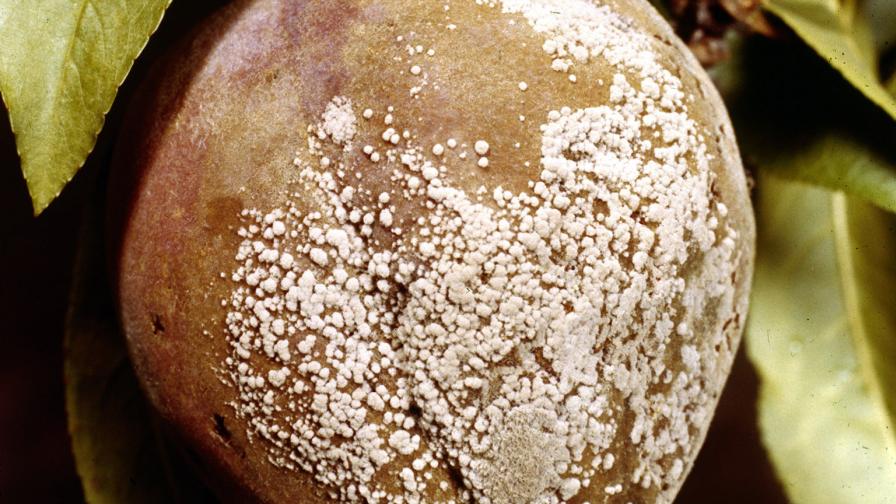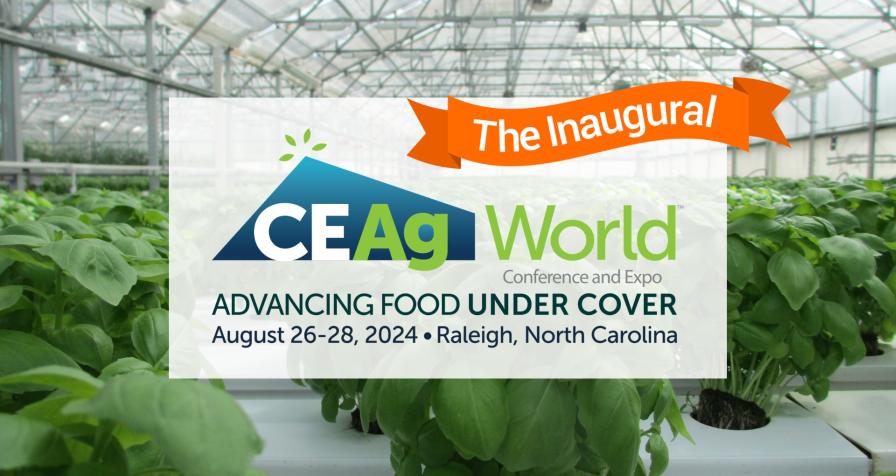Q&A With Peach Expert Desmond Layne

Note: Desmond Layne, a long-time tree fruit specialist at Clemson University (and “Stone Fruit” columnist for American/Western Fruit Grower), is taking his talents to Wenatchee, WA. As of February 2013, he will join the faculty at Washington State University (WSU) as a new endowed chair created by funding from the state’s tree fruit industry. Layne will work out of WSU’s Tree Fruit Research and Extension Center in Wenatchee. In this Q&A, we talk to Layne about how he plans to work with tree fruit growers in the Pacific Northwest, as well as his time spent with stone fruit growers in South Carolina.
Q: What are your goals in terms of working with tree fruit growers in Washington?
Layne: Washington state has a huge and very mature tree fruit industry. I’m going there knowing I have a lot to learn. Fortunately, there are a lot of great people there working in and for the industry. Over the first six months I want to start building relationships and getting a lay of the land. From there I will need to strategize with my colleagues in Extension to see where the biggest needs are, and where resources and future personnel should be allocated. Apples alone have a $7 billion annual economic impact in Washington, and with the size of the tree fruit industry and the needs they have, it will be a matter of prioritization. To accomplish this, I will be working directly with the endowment committee, other growers, the Washington Tree Fruit Research Commission, and WSU faculty to develop a strategic plan for Extension outreach and technology transfer. I’m going to be doing a lot of traveling because I don’t know the production regions and I don’t know the farmers. I need to see their operations and meet them face to face and listen to their concerns and understand their needs.
Q: Can you talk about your lifetime of work in the peach industry and your decision to change your area of focus?
Layne: At my core I am a pomologist (tree fruit specialist). I’ve been very interested in fruit and the fruit industry since I was a teenager and worked on local fruit farms while in high school. My long-term passion for fruit and working directly with farmers wasn’t necessarily tied to one specific crop; it was fruit in general. The drive to expand and grow my program on peaches at Clemson was because of our strong peach industry in South Carolina. It was my primary assignment — and a sweet one it was. But I am excited to expand my experience to include apples, pears, cherries, etc. If you can establish expertise at a high level with one crop, and you have the opportunity to grow expertise in other crops, ultimately it will make you a better pomologist and more useful to the growers you serve. Beyond that, as time and opportunity presents itself, I hope to continue to assist fruit growers in third world countries where they have no Extension service and often lack infrastructure. The goal here is not to create competition with the Washington or U.S. fruit global market, but to simply help these small growers make a living to support their families and to provide nutritious food for their communities.
Another exciting thing for me is that the fruit industry in Washington is huge. A third of what they produce is exported, which means income for farmers, jobs, and delicious and nutritious food for people. It will be exciting to have a significant impact on a very significant industry.
Q: A lot of your work has been in educating consumers about peaches. How will that carry over to Washington?
Layne: Consumer education has been something I’ve tried to emphasize irrespective of where I am. Whether I am talking with fruit growers in South Carolina, China, the Republic of Georgia, Brazil, etc., I want to continue to champion the health benefits of fresh fruit and how they provide so much joy to consume when they are mature and of high quality. When I arrive in Washington, I’ll continue to communicate those messages. Obviously, there are commercial enterprises in Washington with their own promotion programs, but having a qualified university spokesperson to complement those messages with scientifically based information never hurts. There’s a lot of high-quality fruit coming out of Washington, and yet many consumers still don’t know where it came from or how to distinguish between something of marginal quality versus something that is good or something that is excellent. A more educated consumer will help to drive an emphasis on quality that should translate to higher prices. A goal is to create brand loyalty so that satisfied customers will keep coming back, regardless of minor differences in price.
Q: Can you talk about your connection to peach growers in South Carolina?
Layne: I’m leaving behind a lot of close friends in the peach community. Without the peach industry’s support and the opportunities that Clemson University has extended to me over the past 15 years, I wouldn’t have much of a career to stand on. The growers have allowed me to do research on their farms and shared advice with me, along with providing funding and support for most of my research projects. Any success I’ve had at Clemson is directly related to the investment and support of the South Carolina peach industry. I have the greatest respect for these growers and am grateful for the time I’ve been able to work with them, both in good times and bad. The reason I got into pomology and Extension as a career choice is because I wanted to help fruit farmers. What drives me is helping farmers be successful and to have a reliable business they can pass on to future generations.
Q: What is the status of your “Everything About Peaches” website?
Layne: Clemson will maintain the site, and all the content there will continue to remain there. We have a great web team here at Clemson that helped me launch the site, and the university is committed to keeping it as a resource. The in-the-orchard videos on the site were a lot of fun to make, and I was blessed to have my three sons help me in making them. Hopefully, whoever succeeds me at Clemson will take the website and its resources to the next level.
Q: Do you have final thoughts you’d like to share?
Layne: I am very grateful to have had 15 years working at Clemson University and serving the South Carolina peach industry. It’s been a terrific experience, and this is home to me and my family. My decision to move to Washington was based on an unprecedented career opportunity in pomology, and it is in no way a negative reflection on Clemson University or the peach industry here. I am confident that the Clemson peach team will continue to thrive and effectively serve the South Carolina growers and that shortly they will find a replacement for me who will be excellent in their own way. The down-filled parka that I bought years ago when I lived in Michigan is going to have to come out of storage, though.










